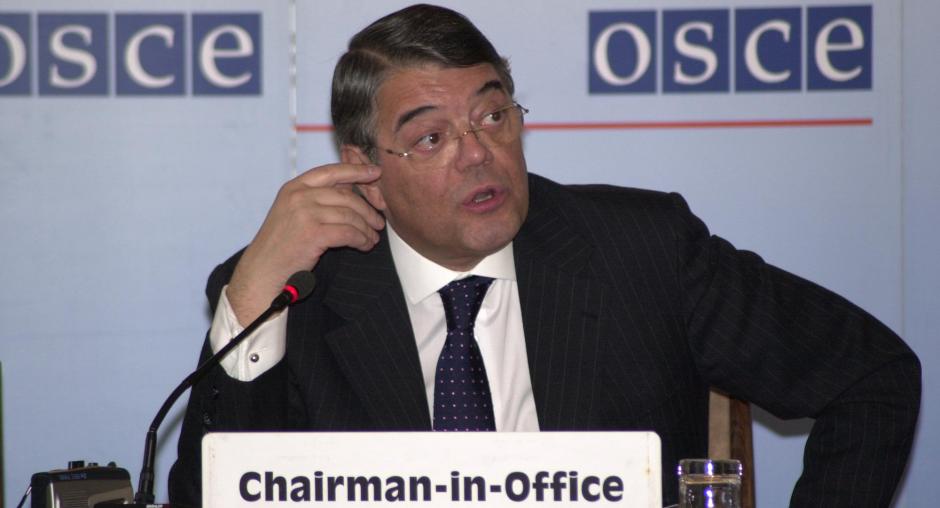Newsroom
OSCE Chairmanship calls for release of Kyrgyz opposition activists
LISBON 17 May 2002

OSCE Chairman-in-Office, Portuguese Foreign Minister Antonio Martins da Cruz, at a press conference in Vienna, 2 May 2002. (Ayhan Evrensel/OSCE) Photo details
LISBON, 17 May 2002 - The Portuguese Chairmanship of the OSCE expressed its deep concern about the continued detention of a group of opposition politicians and human rights activists in Kyrgyzstan, who were taken into custody yesterday by police during a protest in front of the Parliament in the capital, Bishkek.
The Chairmanship considers that Kyrgyzstan needs to increase confidence between Government and civil society, and therefore any steps leading to increased tensions should be avoided by all sides.
The OSCE Centre in Bishkek and its field office in Osh are closely monitoring the situation and are in contact with the Kyrgyz Government, as well as with the representatives of different political parties and human rights activists. In addition to the efforts made by the Centre, the Chairman's Special Advisor on Central Asia, Ambassador Herbert Salber, travelled to Kyrgyzstan on 16 May to discuss the current political situation.
The Chairmanship calls on the Kyrgyz authorities to engage in a real dialogue involving all political parties and representatives of civil society to try to find solutions to the current challenges.
The Chairmanship considers that Kyrgyzstan needs to increase confidence between Government and civil society, and therefore any steps leading to increased tensions should be avoided by all sides.
The OSCE Centre in Bishkek and its field office in Osh are closely monitoring the situation and are in contact with the Kyrgyz Government, as well as with the representatives of different political parties and human rights activists. In addition to the efforts made by the Centre, the Chairman's Special Advisor on Central Asia, Ambassador Herbert Salber, travelled to Kyrgyzstan on 16 May to discuss the current political situation.
The Chairmanship calls on the Kyrgyz authorities to engage in a real dialogue involving all political parties and representatives of civil society to try to find solutions to the current challenges.
